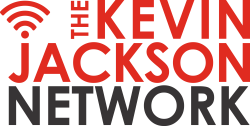
We live in the golden age of the better you. A multi-trillion-dollar global industry thrives on a single, renewable resource: your own perceived inadequacy.
This isn’t just about vague aspirations; it’s a fully militarized campaign against your own personality, armed with productivity apps that guilt you for sleeping, mindfulness gurus who sell serenity on a subscription plan, and a firehose of life-hacking content that makes you feel inefficient for not optimizing your breathing.
Welcome to the Self-Improvement Industrial Complex.
It’s a masterclass in business, where the product is a destination called “Better,” but they never have to deliver you. The moment you arrive—you finally become productive, you lose the weight—the finish line simply moves. Now you’re not just productive, you’re mindfully productive. You’re not just thin, you’re toned. It’s a subscription service for your soul, and you’re on a perpetual free trial.
Historically, this terrain belonged to philosophers and priests.
Today, it’s been co-opted by tech bros in Patagonia vests who’ve rebranded ancient Stoicism as a tool to crush your Q4 earnings, conveniently ignoring that Marcus Aurelius wasn’t journaling to increase his market share. Now, any hack can make himself into a yogi or guru.
Benjamin Franklin, one of America’s original self-help geeks, famously kept a virtue chart to achieve “moral perfection.” He publicly admitted to failing, particularly at “Order” (organization). The key difference? Franklin’s system was free and self-reflective. The modern industry monetizes the journey itself, selling the map while carefully omitting the fact that the treasure might not exist.
The numbers don’t lie. The global personal development market was valued at a staggering $41.71 billion in 2022 and has not grown to over $67 billion. That’s a lot of money for the promise of a fix that, for most, never truly materializes. For those in business, think “DEI” or “ESG” and you get the same results for your business.
Consider These Factoids:
-
The word “procrastination” comes from the Latin procrastinare, meaning “to put off until tomorrow.” The ancient Romans were apparently too busy building aqueducts and empires to coin a word for “scrolling on your smartphone for three hours instead of folding laundry.”
-
A classic study from the University of Scranton suggests that roughly 23% of people give up on their resolutions by the end of the first week, and only 19% stick with them for two years. The most common resolution? You guessed it: to get fitter or lose weight.
-
The “Diderot Effect” is a social phenomenon of consumerism, named after the French philosopher Denis Diderot. He wrote an essay lamenting how a new, fancy robe made all his other possessions look shabby. This is the psychological engine behind many self-improvement purchases—the belief that a new yoga mat, a new journal, a new course, will be the magic catalyst that finally makes you click. Fat chance…{chuckle}
If you tallied all the money you’ve ever spent on self-help books, unused gym memberships, and productivity apps, what genuinely useful skill could you have mastered by now? Is the relentless pursuit of “optimization” just a socially acceptable form of self-loathing?
Your Brain is a Saboteur in a Skin Suit
You’ve decided to change. You bought the book, downloaded the app, sworn a blood oath to your bathroom mirror. By Tuesday, you’re back to your old tricks, feeling like a biological failure. Here’s the liberating secret: you’re not weak-willed. You’re just up against 200,000 years of shoddy neurological engineering.
Your brain is not a sleek supercomputer; it’s a kludged-together museum piece running legacy code from when our biggest concern was not being eaten by a saber-toothed cat. The part of your brain (the prefrontal cortex) that loves long-term planning is a delicate, energy-intensive intern.
The part of your brain that wants that third doughnut and to binge-watch the entire season of Landman right now (the limbic system) is the tenured, lazy employee who controls the electricity and knows all the shortcuts. Trying to “just use willpower” is like sending that intern to fight a gorilla. The outcome is never in doubt.
This is why your brilliant plan for discipline collapses the moment you feel stressed, tired, or bored, or that hot model hits on you at the bar. Your brain, in its infinite wisdom, has decided the easiest way to deal with discomfort is to trigger the same ancient pathways that once helped us find calorie-dense berries. Congratulations, your anxiety-induced online shopping spree is just a modern, poorly-adapted foraging (or other) behavior.



